Headstock and tuning machines
The headstock is is placed at the extreme part of the neck. The tuning machines are screwed into it and are used to fix the strings and tune the bass.
There are basically two types of headstocks: the Fender’s type with all the tuning machines on one side of it and the Spanish type with the tuning machines in the same position as in the classical guitar. On a 4-string bass they are divided equally, two on each side. A 5-string bass has three on one side and two on the other (3+2), whereas a 6-string has three on each side (3+3). Ken Smith basses are a good example of bass built with the Spanish headstock, but let’s not forget also the Rickenbacker bass.
A middle ground between the two types is represented by Musicman’s bass palettes (3+1).
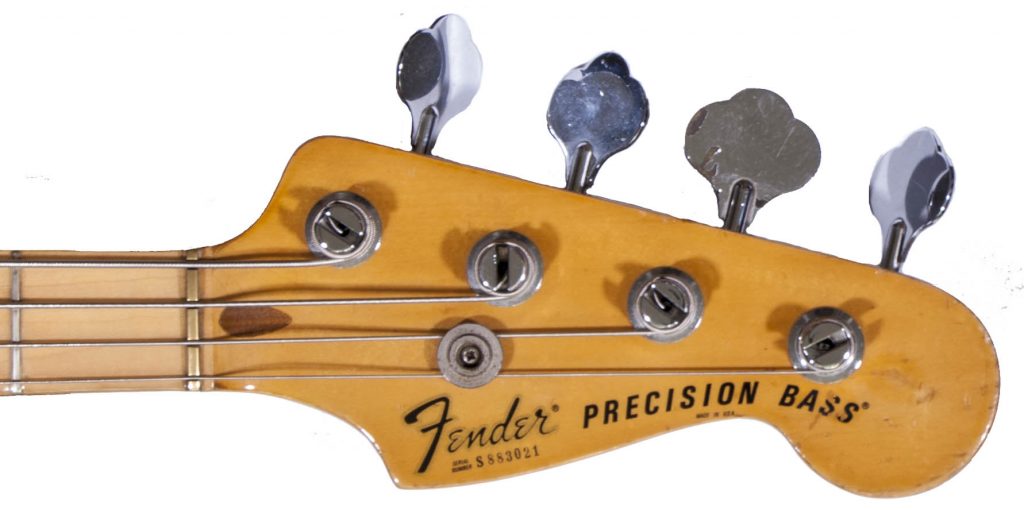
FENDER HEADSTOCK WITH TUNING MACHINES ON ONE SIDE
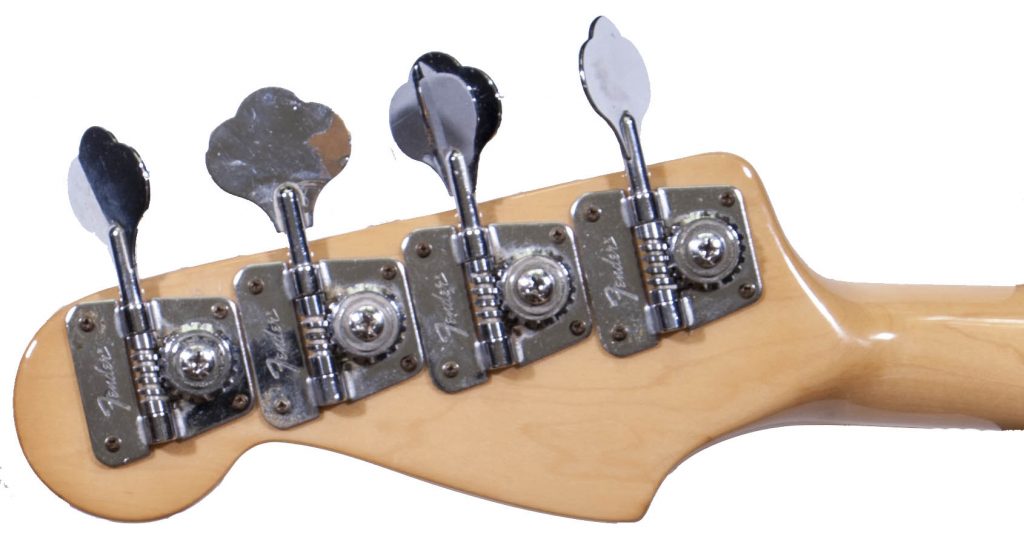
FENDER HEADSTOCK WITH TUNING MACHINES ON ONE SIDE (back)
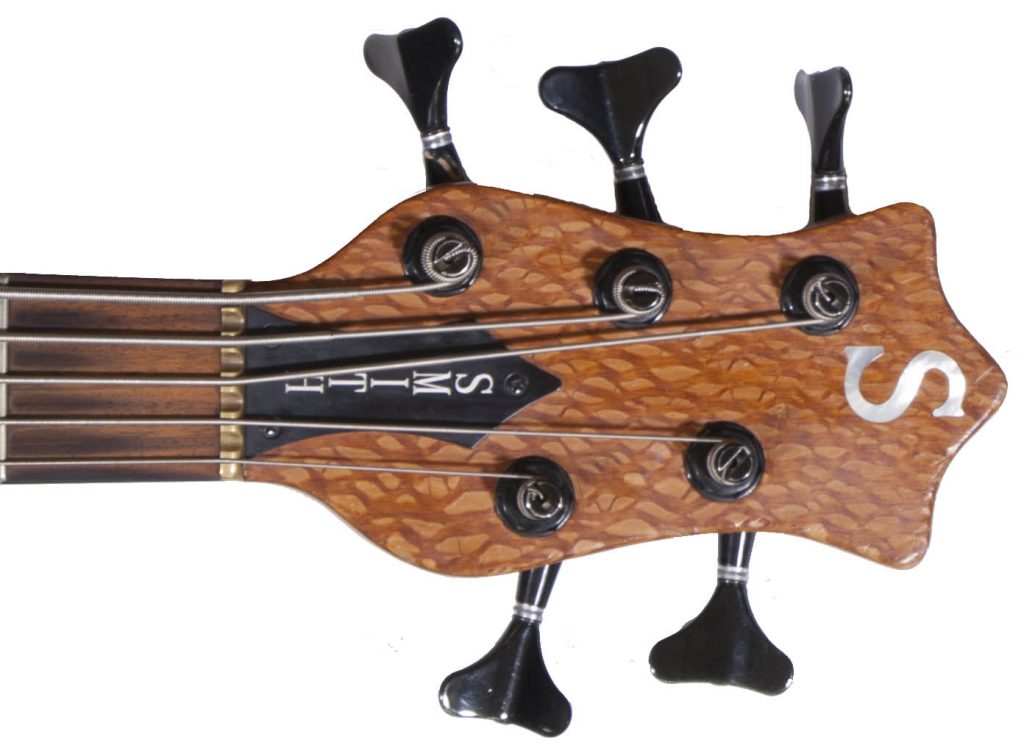
SPANISH HEADSTOCK WITH TUNING MACHINES DISTRIBUTED ON BOTH SIDES (3+2)
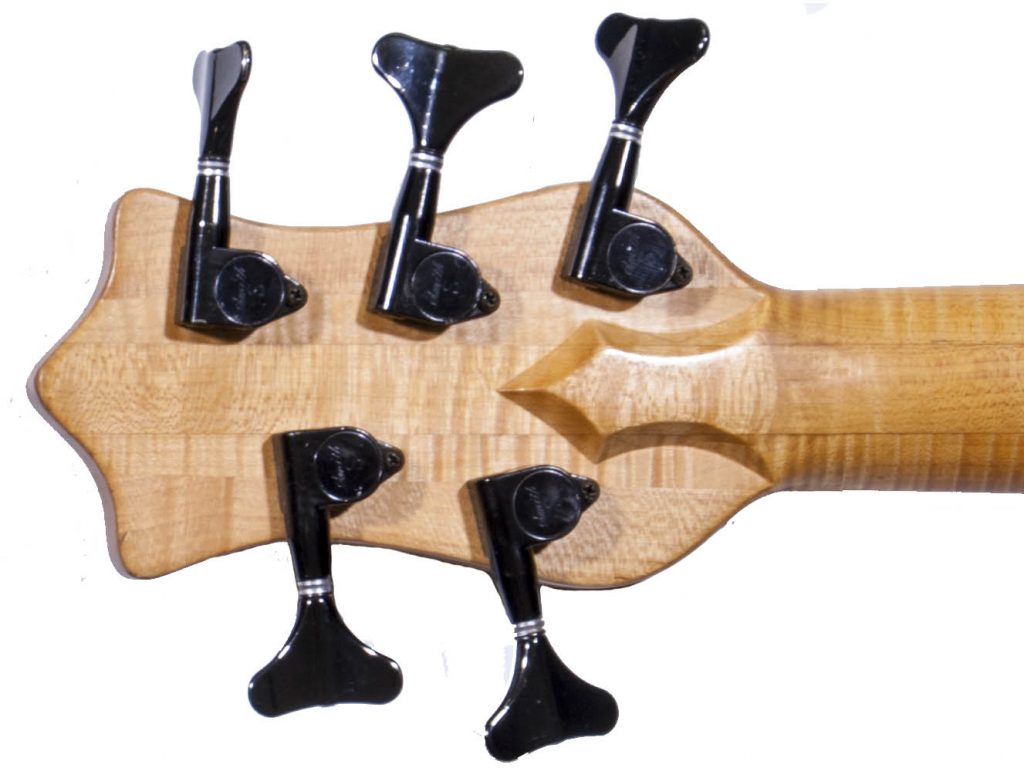
SPANISH HEADSTOCK WITH TUNING MACHINES DISTRIBUTED ON BOTH SIDES (3+2) (back)
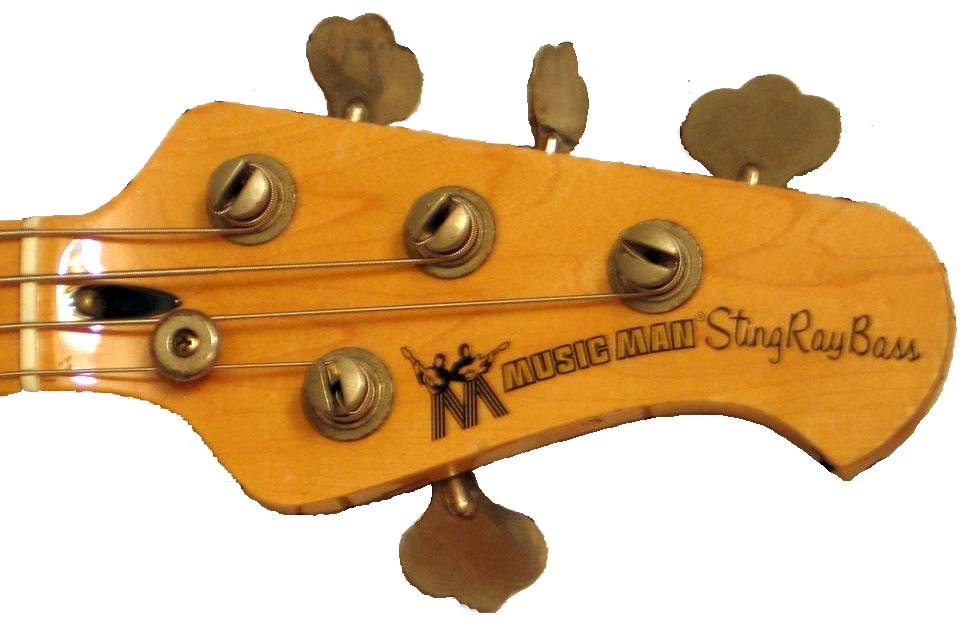
MUSIC MAN MIDDLE GROUND BETWEEN FENDER AND SPANISH TYPE (3+1)
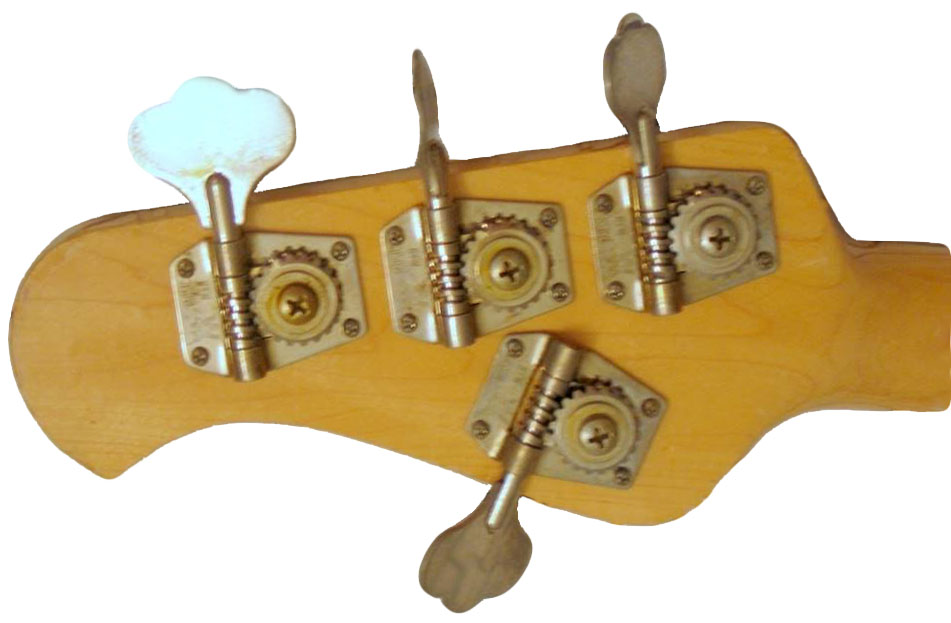
MUSIC MAN MIDDLE GROUND BETWEEN FENDER AND SPANISH TYPE (3+1) (back)
Another important feature to consider is the inclination of the headstock with respect to the keyboard. A bigger angle gives more sustain to the instrument. We observe how, between the two headstocks examined, the Fender headstock is parallel to the keyboard while that of the Smith (Spanish) has a certain inclination.
There also exist basses without the headstock, so-called (headless). In those cases the tuning machines are installed on the bridge.
Tuning machines are based on the principle of the endless screw. A tuning machine acts on a cog wheel which is connected to a pin. The pin goes through the headstock and the string is wound on it. Often the pin has a hole and this helps winding the string.
After having anchored and wound the string around its pin, through the tuning pegs it is possible to adjust the tension and therefore the tuning.
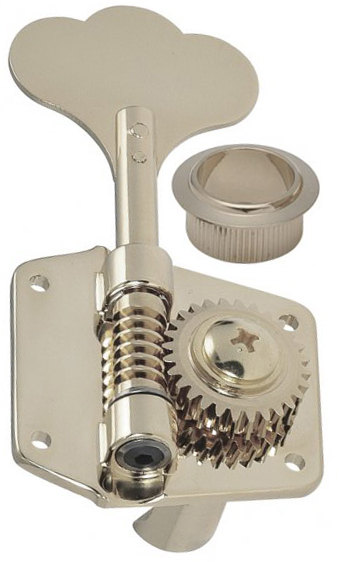
TUNING MACHINE
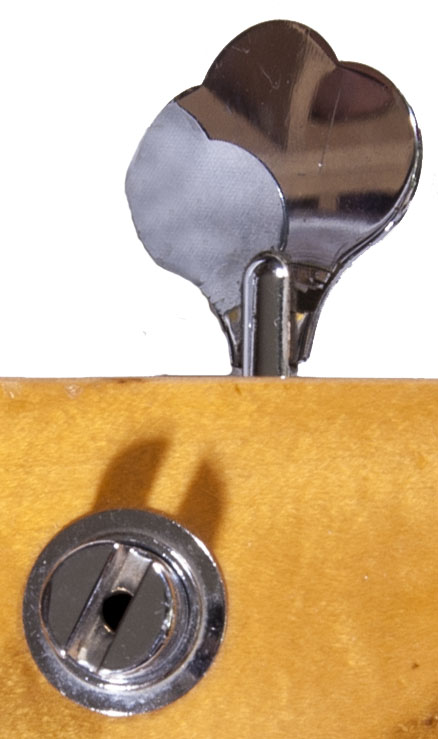
HOLE IN THE PIN TO WRAP THE STRING
